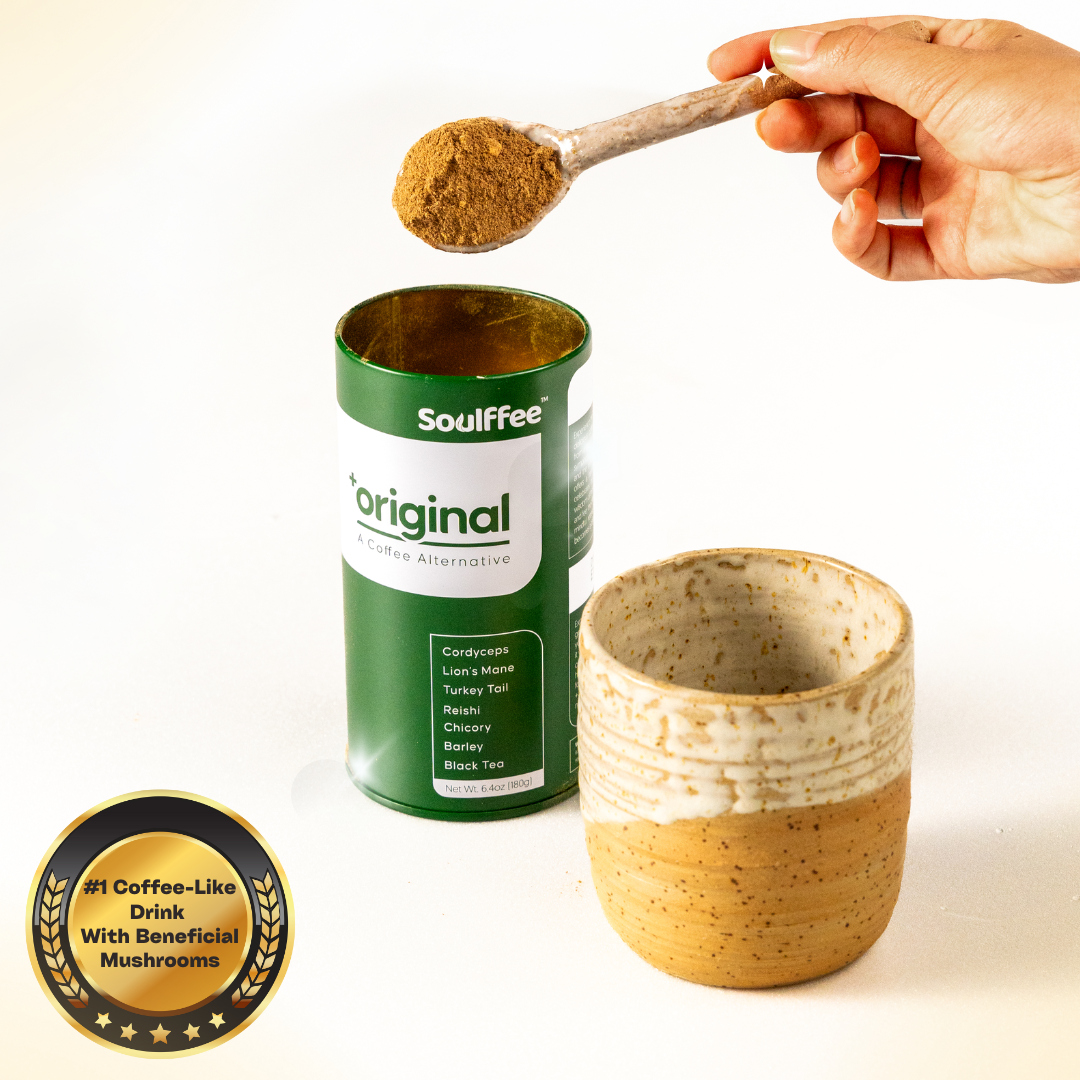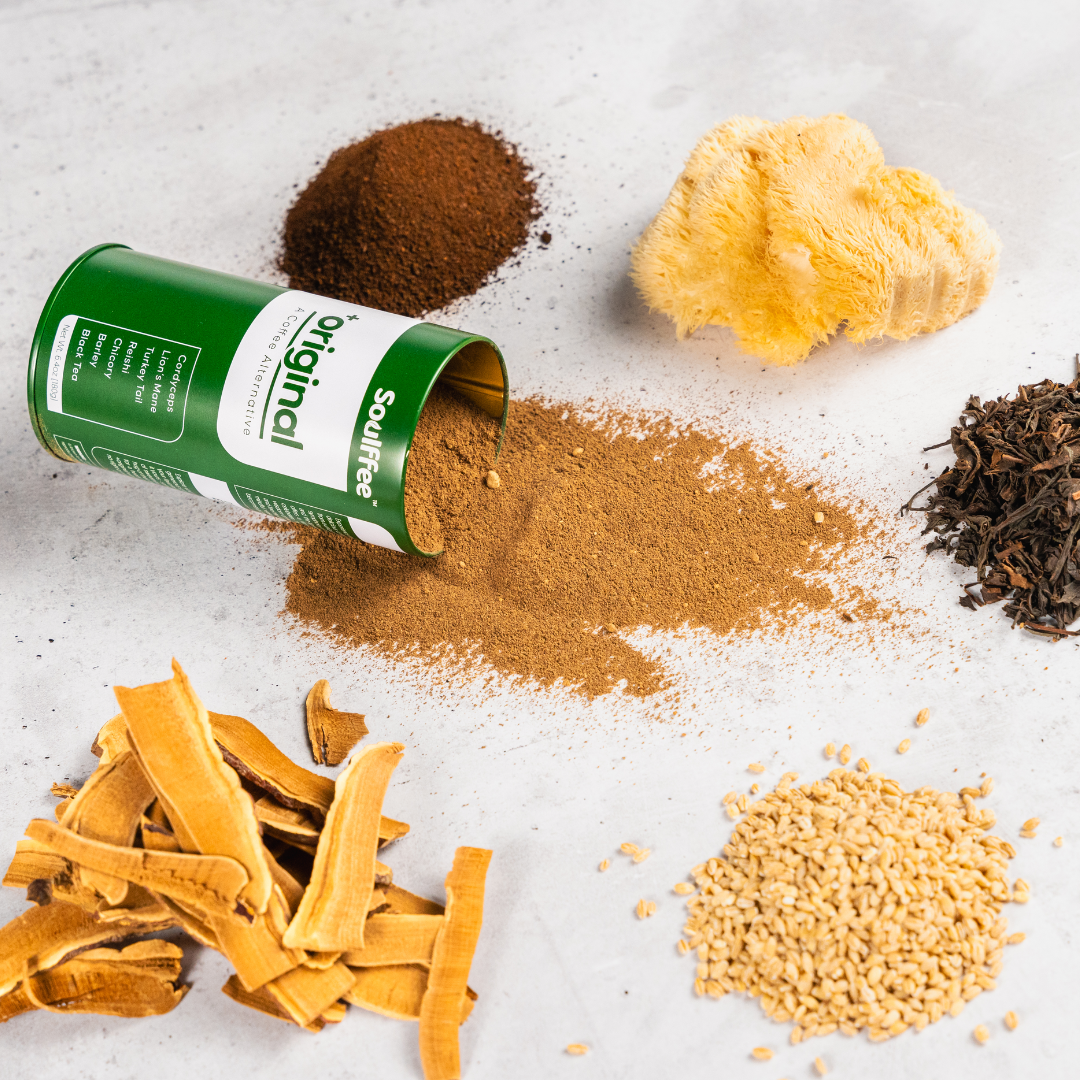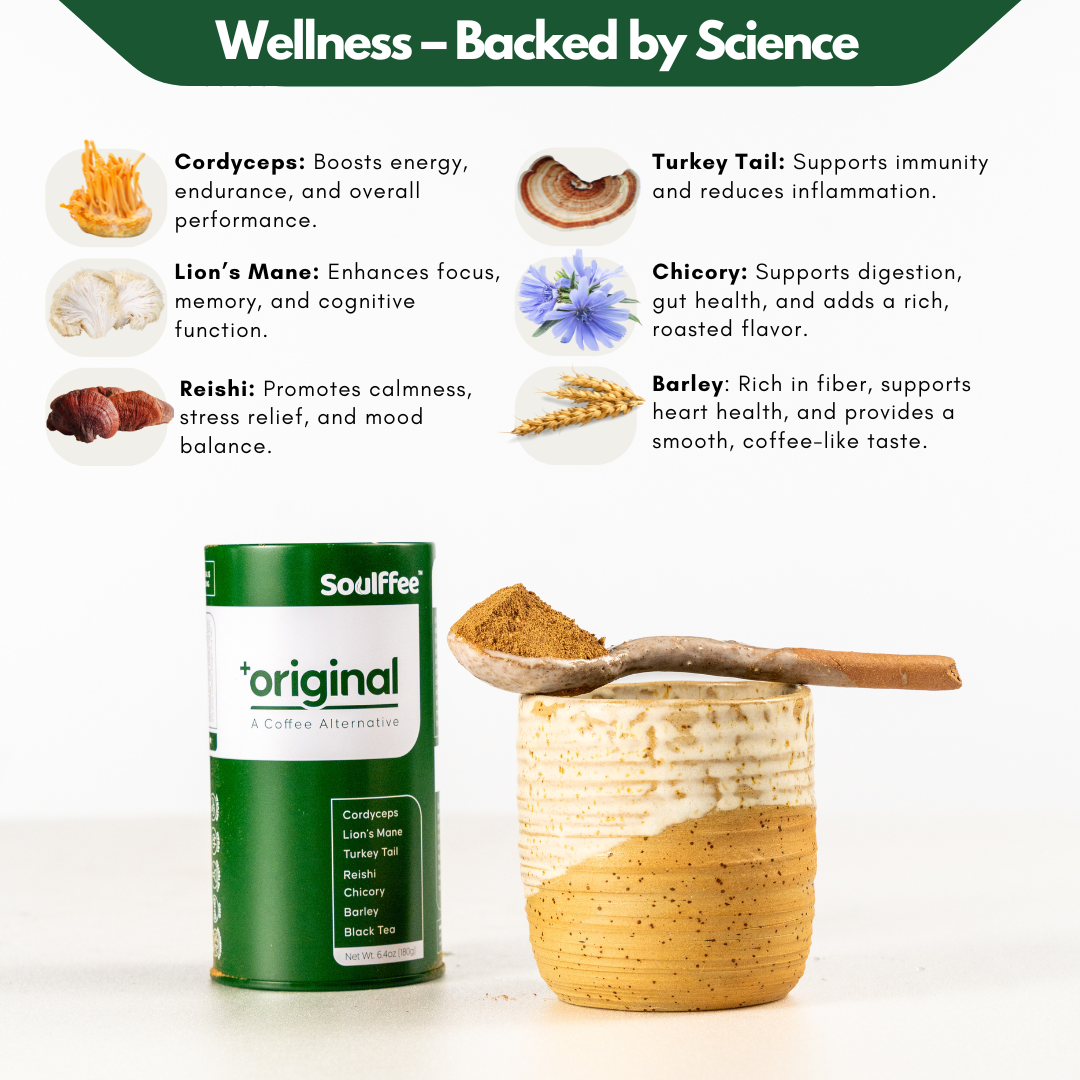The Truth About Caffeine: How Much Is Too Much?
Caffeine is a powerful stimulant that millions of people rely on to kickstart their mornings and fuel their days. From coffee and tea to energy drinks and sodas, caffeine is everywhere. But while it’s socially accepted and readily available, the question remains: How much is too much?
In this blog, we’ll explore the health impacts of caffeine, how it affects your body, and why a lower-caffeine alternative like Soulffee can be a smarter, more balanced choice for those who prioritize wellness.
How Caffeine Affects Your Body
Caffeine works by stimulating your central nervous system, blocking adenosine—a neurotransmitter that promotes sleep—and increasing adrenaline levels. This makes you feel awake, alert, and ready to take on the day. However, this temporary boost comes with its downsides, especially when consumed in high quantities.
-
Jitters and Anxiety
High doses of caffeine can trigger the “fight or flight” response, leading to jitters and heightened anxiety. This overstimulation can interfere with your ability to focus, making it hard to stay calm and productive. -
Disrupted Sleep Patterns
Caffeine has a half-life of 5-6 hours, meaning it can stay in your system for up to 12 hours or more. This lingering effect can disrupt your sleep, even if you’ve only had caffeine in the afternoon. Poor sleep quality then leads to fatigue, creating a cycle where you feel the need to consume even more caffeine the next day. -
Increased Heart Rate and Blood Pressure
Caffeine can cause a temporary increase in heart rate and blood pressure. While this may not be a problem for some, individuals with underlying heart conditions or high blood pressure might experience negative side effects. Over time, excessive caffeine intake can put unnecessary strain on your cardiovascular system. -
Dependence and Withdrawal
The more caffeine you consume, the more your body builds up a tolerance. This means you’ll need higher doses to feel the same effects. When you try to cut back, you might experience withdrawal symptoms like headaches, fatigue, irritability, and even depression.
How Much Caffeine Is Too Much?
According to health experts, up to 400 milligrams of caffeine per day (roughly 3-4 cups of coffee) is considered safe for most adults. However, individual tolerance varies widely. Some people may feel jittery and anxious after just one cup, while others may consume multiple cups without noticeable side effects.
The key is to monitor how your body reacts to caffeine. If you find yourself feeling anxious, having trouble sleeping, or experiencing rapid heartbeats, it’s a sign that your caffeine intake might be too high. For those who are sensitive to caffeine, even small amounts can have significant effects.
It’s also important to note that caffeine isn’t just in coffee. It’s present in tea, chocolate, energy drinks, sodas, and even some medications. These hidden sources can add up quickly, pushing your daily intake higher than you realize.
Why a Lower-Caffeine Alternative Like Soulffee Is a Smart Choice
For wellness-focused individuals who want the energy boost of caffeine without the side effects, a low-caffeine alternative like Soulffee offers a balanced solution. Here’s why:
-
Gentle Energy Lift
Soulffee provides just enough caffeine to give you a gentle lift without overstimulation. This means you get the alertness and focus you need without the jitters or anxiety often associated with traditional coffee. -
Supports Better Sleep
Because Soulffee contains significantly less caffeine, it’s easier to manage your intake and avoid the cycle of disrupted sleep. You can enjoy your morning routine without worrying about how it will impact your sleep later that night. -
Enhanced Focus Without the Crash
With a balanced caffeine level and functional ingredients like lion’s mane, Soulffee promotes sustained mental clarity and focus throughout the day. Unlike traditional coffee, which can cause an energy crash, Soulffee is designed to support stable energy levels, helping you stay productive without the midday slump. -
Gut-Friendly Formula
Soulffee’s blend includes ingredients like chicory and barley, which are gentle on the stomach and support gut health. Traditional coffee’s high acidity can cause digestive discomfort, but Soulffee offers a soothing alternative that promotes overall well-being.
Tips for Managing Your Caffeine Intake
If you’re aiming to reduce your caffeine consumption or find a balance that works for you, here are some tips to consider:
-
Set a Daily Limit
Aim to stay under 300-400 milligrams of caffeine per day. This could mean swapping out one of your daily coffee cups for a lower-caffeine option like Soulffee. -
Be Mindful of Hidden Sources
Remember that caffeine isn’t just in coffee. Check labels on sodas, energy drinks, and even medications to make sure you’re aware of your total intake. -
Switch to Low-Caffeine Alternatives
Replace your afternoon or evening coffee with Soulffee. This allows you to enjoy the warm, comforting experience of a coffee-like beverage without the risk of disrupting your sleep. -
Listen to Your Body
Pay attention to how you feel after consuming caffeine. If you’re experiencing symptoms like restlessness, rapid heartbeat, or trouble sleeping, it may be time to adjust your intake.
Final Thoughts: Finding Balance with Soulffee
Caffeine isn’t inherently bad, but like anything, it should be consumed in moderation. Understanding how much caffeine is too much for your body and finding the right balance is essential for maintaining your well-being. For those who are wellness-focused and want to stay sharp and productive without the negative side effects, low-caffeine options like Soulffee are a smart choice.
By switching to Soulffee, you can enjoy a balanced energy boost, better sleep, and enhanced focus—all while staying in control of your caffeine intake. It’s about finding a mindful approach that supports both your health and lifestyle, ensuring you can thrive without compromise.






Soulffee: Clear Mind, Productive Day
Why Soulffee Stands Out